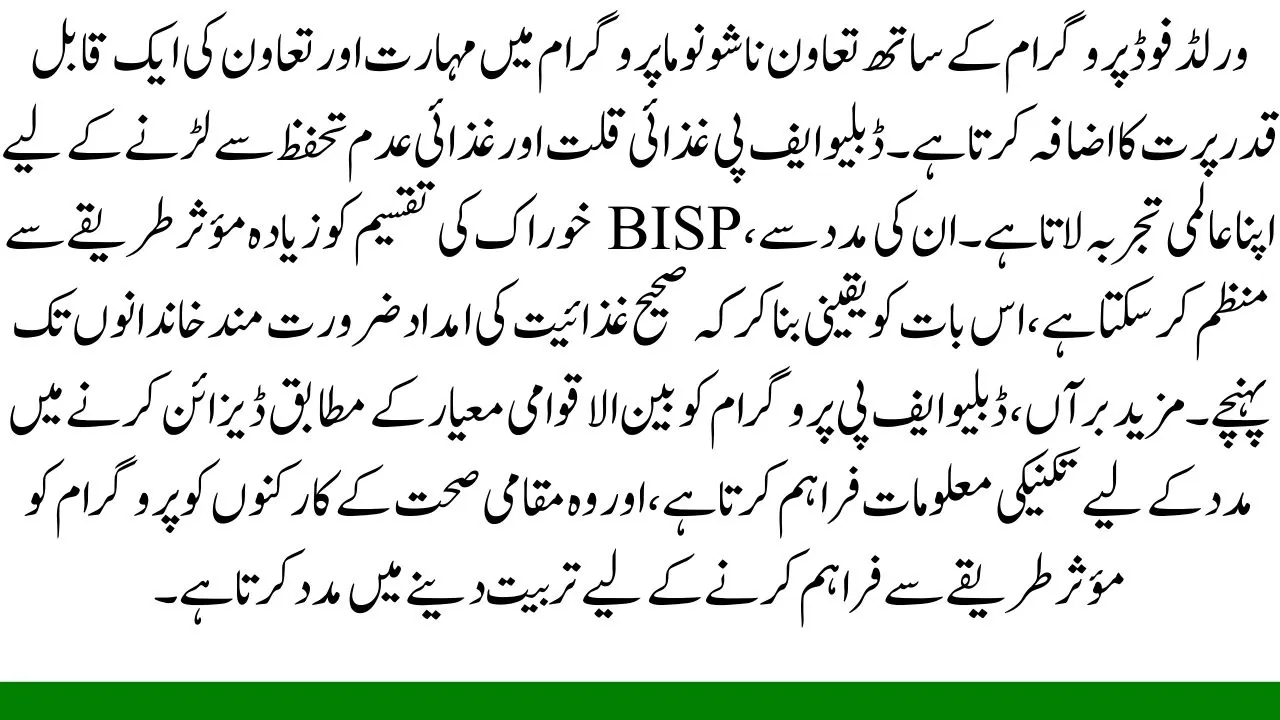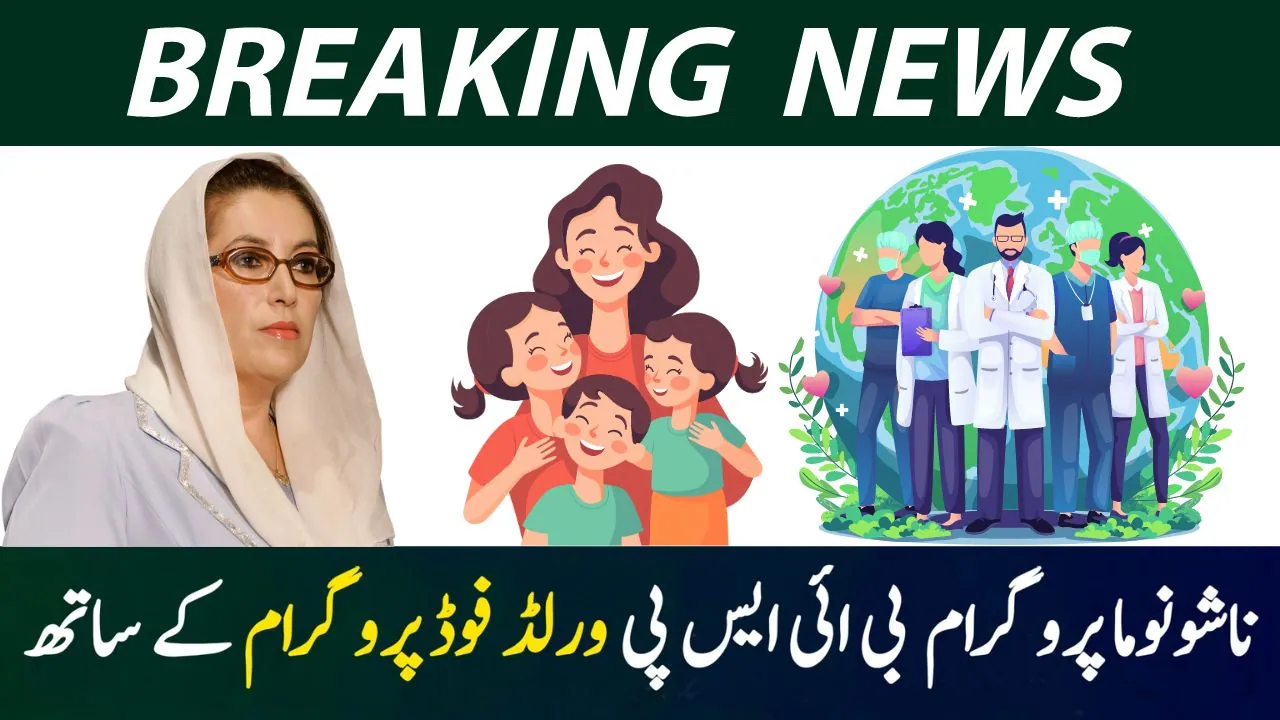The Benazir Income Support Programme (BISP) has partnered with the World Food Programme (WFP) to tackle the issue of malnutrition in Pakistan. This partnership aims to help vulnerable groups, such as children and pregnant women, who are most affected by malnutrition. Through the Nashonuma Program, both organizations work together to provide targeted nutritional support to these groups, ensuring they receive the care and nourishment they need to stay healthy.
| Aspect | Details |
| Program Name | Nashonuma |
| Partnership | BISP and WFP |
| Focus | Nutrition for children and pregnant women |
| Key Support | Cash transfers and food distribution |
Contents
The Objective of the Nashonuma Program
The primary goal of the Nashonuma Program is to improve the nutritional health of pregnant women, lactating mothers, and children under the age of two. These groups are at the highest risk of malnutrition, which can lead to long-term health problems. The program is structured to focus on maternal and child health, aiming to break the cycle of poor nutrition being passed down from one generation to the next. By improving the nutrition of mothers and young children, Nashonuma hopes to create healthier futures for families across Pakistan.
Key Components of the Nashonuma Program
The Nashonuma Program has several important components designed to support families:
- Conditional Cash Transfers: Families receive cash transfers on the condition that they follow healthier nutrition practices and ensure proper care for mothers and children.
- Distribution of Specialized Food: The program also provides specially fortified food to pregnant and lactating women and children, helping to prevent malnutrition during critical development stages.
- Health and Nutrition Awareness: Families are educated on the importance of nutrition, hygiene, and healthcare to help them make better decisions for their health.
These components work together to ensure that mothers and children not only receive direct help but also learn how to maintain a healthy lifestyle in the long term.
How the Collaboration with WFP Enhances the Program
The collaboration with the World Food Programme adds a valuable layer of expertise and support to the Nashonuma Program. The WFP brings in its global experience in fighting malnutrition and food insecurity. With their assistance, BISP can manage food distribution more effectively, ensuring that the right nutritional support reaches the families in need. Additionally, WFP provides technical knowledge to help design the program according to international standards, and they assist in training local health workers to deliver the program effectively.

Impact of the Nashonuma Program
Since its launch, the Nashonuma Program has had a positive impact in areas where it has been implemented. Families who receive the specialized food and conditional cash transfers report improved health for both mothers and children. The program is already helping reduce cases of stunting and wasting, two severe signs of malnutrition. By focusing on these critical health issues, Nashonuma is expected to make a lasting difference in the health of vulnerable populations in Pakistan.
Also Read: How to Apply for BISP Card for 10,500 Payment Withdrawal – Update 2024
Conclusion
The partnership between BISP and the World Food Programme through the Nashonuma Program represents a strong step forward in the fight against malnutrition in Pakistan. By providing financial and nutritional support to mothers and children, the program is helping to create healthier communities. Through education and targeted intervention, Nashonuma not only addresses immediate nutritional needs but also promotes long-term health and well-being for future generations. This collaboration sets a great example of how international partnerships can work together to solve critical public health issues.

